Do Catholics Know That Their Theology is Correct?
by Steven Dillon
Filed under Belief
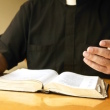
NOTE: Today we feature a guest post from Steven Dillon, one of our regular non-Catholic commenters. On Wednesday, we'll share a response from Catholic writer Brandon Vogt. This site is primarily a forum for dialogue between Catholics and atheists. We can see this clearest on the part of the Catholic contributors who post about everything from the influence of Catholicism on science, and the crusade history to Marian apparitions and Catholic policy in the public school system. By... Read More
Why Believe?
by Carl Olson
Filed under Belief, Faith, New Atheists
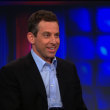
"Faith is always at a disadvantage; it is a perpetually defeated thing which survives all of its conquerors," wrote G. K. Chesterton. Faith is the Christian word. Avery Cardinal Dulles, S.J., in his masterful theology of faith, The Assurance of Things Hoped For, writes, "More than any other religion, Christianity deserves to be called a faith". He points out that in the New Testament the Greek words for "faith" and "belief" occur nearly 500 times, compared to less than 100 for "hope" and... Read More
Prayer, Science, and the Existence of God
by Trent Horn
Filed under Belief, Science, The Existence of God
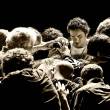
Can science find God? If God is defined as a being (or perhaps “the ground of being”) that is neither composed of matter nor confined to a spatial location, then the answer seems to be no. After all, science is limited to explaining the natural, physical world. If God exists beyond that world and is not composed of anything found within it, then he seems to be out of the reach of scientific inquiry. But even if science can’t “find” God in the same way I can find my car in a parking... Read More
How to Find God (in Six Not-So-Easy Steps)
by Jennifer Fulwiler
Filed under Belief
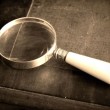
I regularly get emails from people who say that they've been seeking God, but haven't found him. They often express disappointment and frustration at the fact that once-promising spiritual journeys have now led to a dead end, and they want to know: "Is there anything else I can do?" I'm not a spiritual director or a theologian, but I do have plenty of experience with spiritual dry spells and difficulties in the process of conversion, and I've spent a lot of time talking with wise people... Read More
Demons, Playing Cards, and Telescopes
by Joe Heschmeyer
Filed under Atheism, Belief
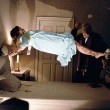
In 1949, Jerome S. Bruner and Leo Postman asked a group of 28 students at Harvard and Radcliffe to perform a simple task: identify playing cards. There were just two catches. First, these cards were shown very quickly: for 10 milliseconds at first, but increasing up to 1000 milliseconds if they struggled to identify the card. Second, the researchers were using a deck of four ordinary playing cards and six “trick cards” in which the card's color and suit were incongruous (red spades,... Read More
Varieties of (Non)Belief
by Paul Rimmer
Filed under Belief

NOTE: Today we share a guest post from one of our non-theist commenters, Paul Rimmer. Does the world need another article on how to define atheism? Does Strange Notions? These questions had to open the article, in part because there have already been several different Strange Notions articles on how to define atheists, including the most recent article about self-identified atheists who believe in God. Yet here I am, talking about how to define the terms “atheist”, “theist”,... Read More
Arguing from Authority
by Dominicans of the Province of St. Joseph
Filed under Belief

I once heard it suggested that there’s a sort of joke hidden in the Latin original of the Summa Theologiae that didn’t make it into the commonly used English translation: “the proof from authority is the weakest form of proof,” we read in the Benziger edition (I.1.8.2us), and yet we don’t see the words that follow in the Latin text: “secundum Boëtium.” In the original Latin, you see, Thomas argues that the argument from authority is the weakest form of argument on the... Read More
What’s the Difference Between Fact and Opinion?
by Dr. Edward Feser
Filed under Belief
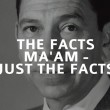
NOTE: Dr. Feser's contributions at Strange Notions were originally posted on his own blog, and therefore lose some of their context when reprinted here. Dr. Feser explains why that matters. A reader wrote me to ask: "Please could you elucidate the distinction between a fact and an opinion? I am a secondary school English teacher and there is a lot of rubbish written on this part of the curriculum that would lead to such absurdities as, for example, the atomic weight... Read More
Is It Possible to Raise Your Kids to Be Open-Minded About Religion?
by Jennifer Fulwiler
Filed under Belief

In my part of the country, it's common to raise your kids to be "open-minded about religion." I know quite a few parents who are taking this route, and it seems to be a more and more popular choice every year. I've always respected the sentiment that drives this decision. The parents I know who want their children to be open-minded in this area typically seem to do so out of a desire to respect different viewpoints, and a hope that their children will think for themselves rather than... Read More
I’m a Direct Descendant of Darwin…and a Catholic
by Laura Keynes
Filed under Belief, Evolution
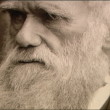
"Are you related to the economist?” people sometimes ask when they see my surname. I explain that, yes, John Maynard Keynes is my great-great-uncle—his brother Geoffrey married Margaret Darwin, my great-grandmother. “So you’re related to Darwin too?” Yes, he’s my great-great-great grandfather. Eyes might fall on the cross around my neck: “And you’re a Christian?” Yes, a Catholic. “How does a Darwin end up Catholic?” The question genuinely seems to puzzle people.... Read More






